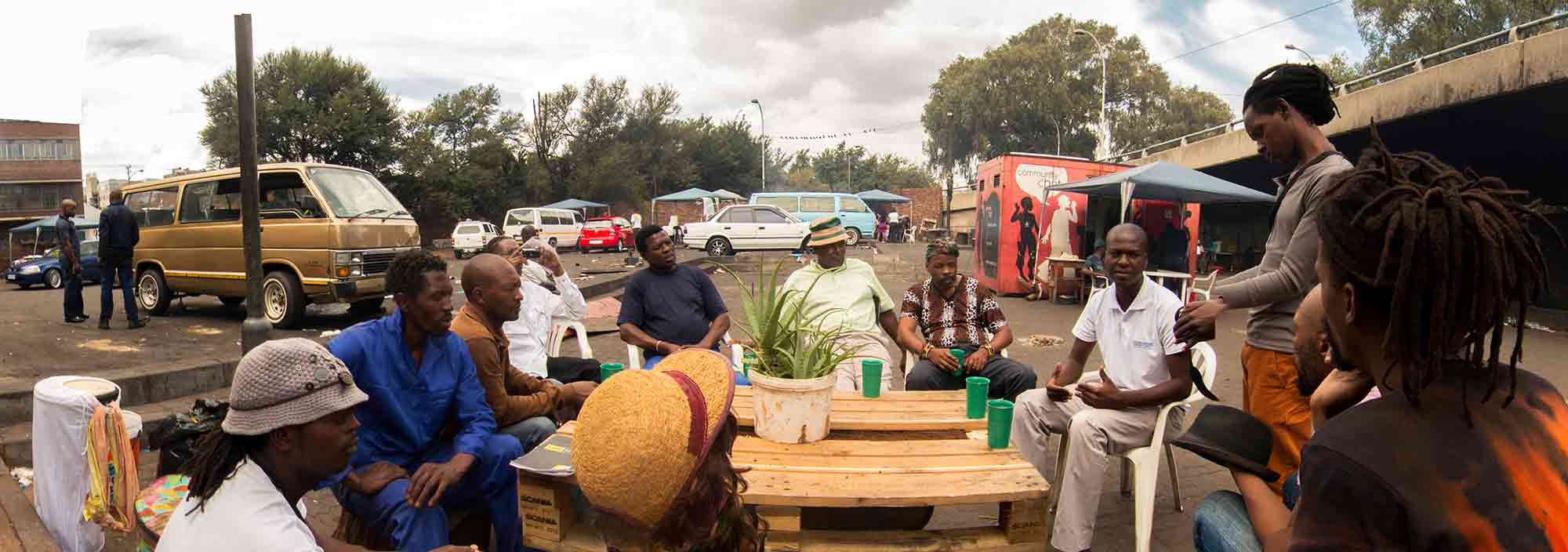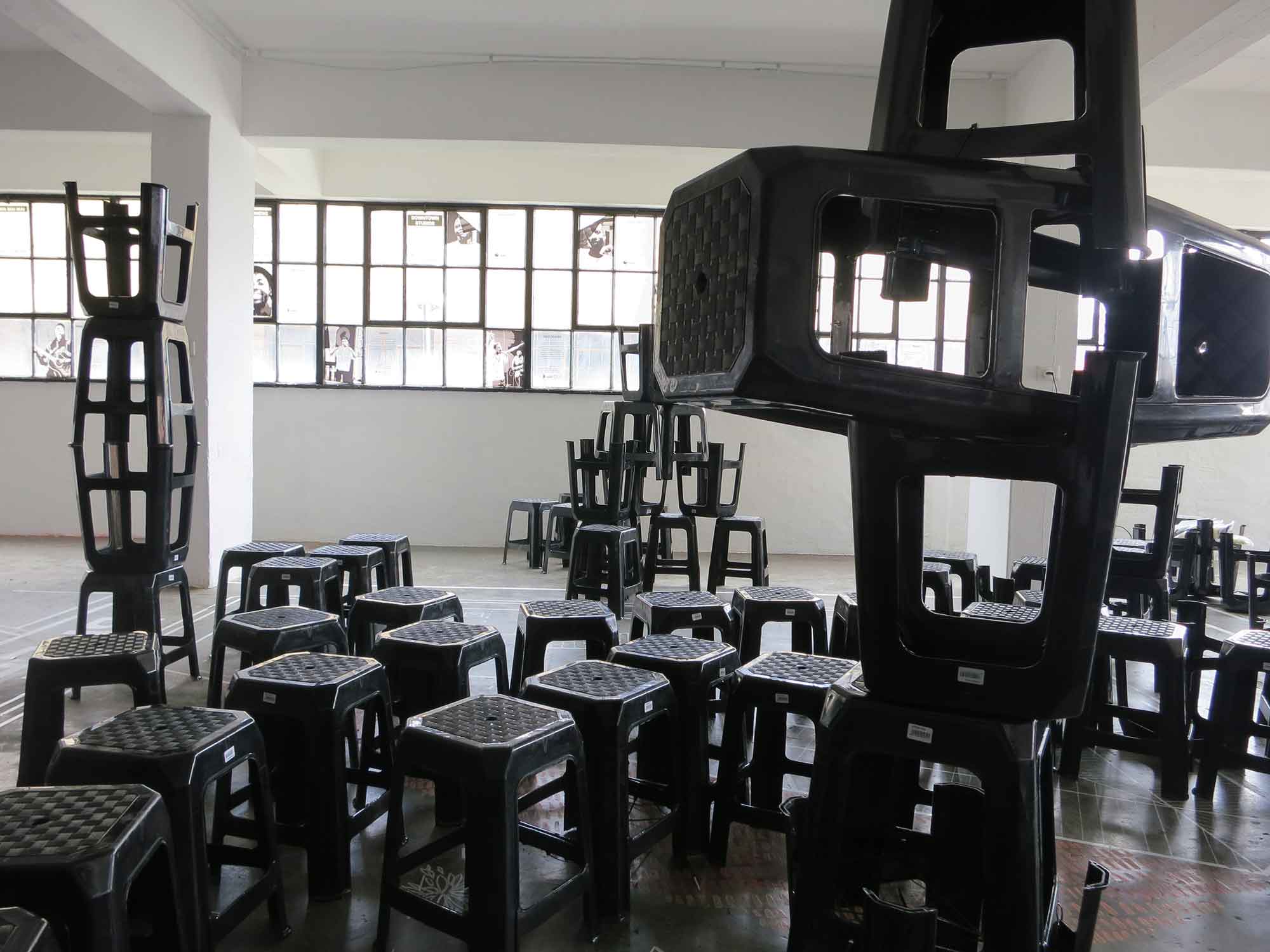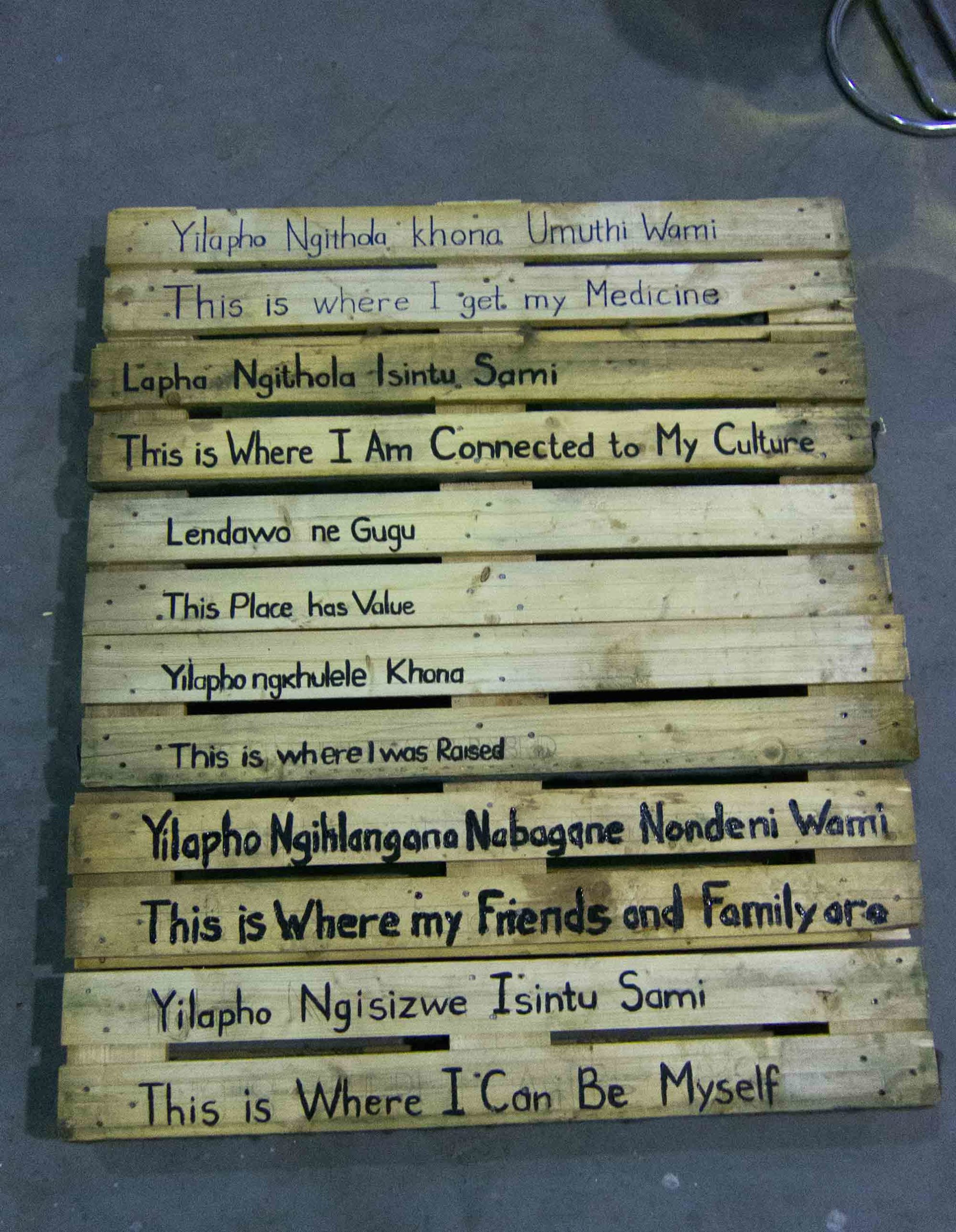- Login
Critical Spatial Practice









My praxis seeks to work with city-making practices, sites and city-users in Johannesburg in order to engage with the need for an ‘…opening up of a fertile research agenda for more grounded and spatially attuned phronetic research…’ (Pieterse & Simone, 2013, p. 9).
1to1 – Agency of Engagement (with Liana Transplanter, WayWard Sun under the Public Acts / Johannesburg Project initiated by Katharina Rhode and Thiresh Govender)
~
What does Mai Mai Mean? was the pilot initiative established after an invitation by the Kwa-Mai Mai Market leadership to support a development strategy for their cultural common space in inner-city Johannesburg, South Africa.
The question was designed to co-productively explore the socio-spatial values of the market over a series of small interventions, activations and public events. The project collaboration between 1to1 – Agency of Engagement and WeAmbush initiated the longer engagement through a curated a public performance inside the Public Acts/Johannesburg that aimed to reveal the seemingly hidden values of the market in a careful and critical manner.
The Kwa-Mai Mai Market is a space that offers access to traditional healing products, services and rituals to a mainly isiZulu client, in addition to other cultural groups that operate from the inner market space. The Kwa- Mai Mai Market is one of the oldest markets in Johannesburg and an importance space for both local and visiting amaZulu people. It is stigmatized by many due to its location, user group and appearance, while being exploited by visiting tourists who simply use the deeply traditional and private space as a photo stop without respecting or acknowledging the market’s traditions, privacy or meaningfully contributing to the market’s economy.
A location outside the actual market was selected with the Kwa-Mai Mai leadership for the research and spatial activation due to the sensitivity of the space. This was undertaken over several weeks of engagement that used planting and gathering as forms of storytelling for ethical research collection and sharing. Some of these findings were collated and recorded (in both English and isiZulu) onto small sections of recycled palettes, and in conjunction with a creative seating provocation, were assembled into a public garden and communal gathering area as the launch of Act#5 and #6.
The larger findings from the co-productive research process of the Public Acts/Johannesburg project was shared through a public discussion later that day. This initial 6-week process was the first in many projects with the leadership including a spatial development programme, mobile trading stands several smaller support exercises as well.
Jhono Bennett is a socio-technical architectural urbanist based in Johannesburg. Having been trained in Durban (his home-town) and Cape Town, he holds a master’s degree in architecture with distinction from the University of Pretoria with a supplemented semester abroad at the Carlton University in Ottawa, Canada. In 2015 he was nominated as an Ashoka Fellow and is currently part of the YALI Mandela Washington Fellowship where he spent the summer of 2016 studying with 25 other Young African Leaders at the University of California, Berkeley.
Jhono has recently shifted from his leadership role of his co-founded social enterprise; 1to1 – Agency of Engagement, a non-profit entity that undertakes design-based collaborative projects often positioned between various grass-roots organisations, professional entities, academia and government. He has done so while holding a research position within the DSD Desis Lab at the University of Johannesburg’s Faculty of Art, Design and Architecture and managing various tactically built projects, local and international university teaching roles as well as several multidisciplinary research projects in the field of urban development and participatory design. This has led him into work with various departments of the South Africa government, key local and international research institutes and international universities including Harvard’s GSD, USA and the University of Sheffield’s Masters in Urban Design, UK.
During this period, he has used teaching as a grounded form of praxis that has allowed him a sustainable means to operate 1to1, while fostering an important space to write, publish and ask critical questions through action-research and reflective learning in design-research. This praxitional position oversaw his development as a design teacher in both undergraduate and postgraduate departments in South Africa as well as in Sheffield, UK and in Ahmedabad, India.
A key element of this praxis was via the University of Johannesburg’s Graduate of School of Architecture. It was here while establishing Unit 14: Rogue Economies and Unit 2: Architecture & Agency that he developed his own pedagogical style of teaching through positionally critical, reflective methods and techniques. These were developed through the complex inter-sectional aspects of teaching in the post-apartheid, post-colonial context of a systemically unequal society.
Jhono’s work as strategic director and co-founder of 1to1 has focused on leading his organisation to systemically address spatial inequality in South Africa through the support and capacitation of residents of informal neighbourhoods. He has done so through tactically linking elements of national government, the private sector of the building industry and universities in South Africa via self-developed initiatives that have seen the development of situated methods of neighbourhood building, designing and facilitation that focus on designing process support tools and approaches. These tacitly designed tools play a crucial role in his advocacy work that aims to dissolve ingrained negative perceptions of grass-roots value in city-making processes in post-colonial and post-apartheid cities of Southern Africa.
Liz Ogbu, NOW Hunters Point (2006) – Activist Action
Dorothee Kreutzfeldt & Bettina Malcomess, Not No Place (2013) – Book
Urban Solutions Urban Design, Baragwanath Taxi Rank (2005) – Building



































































